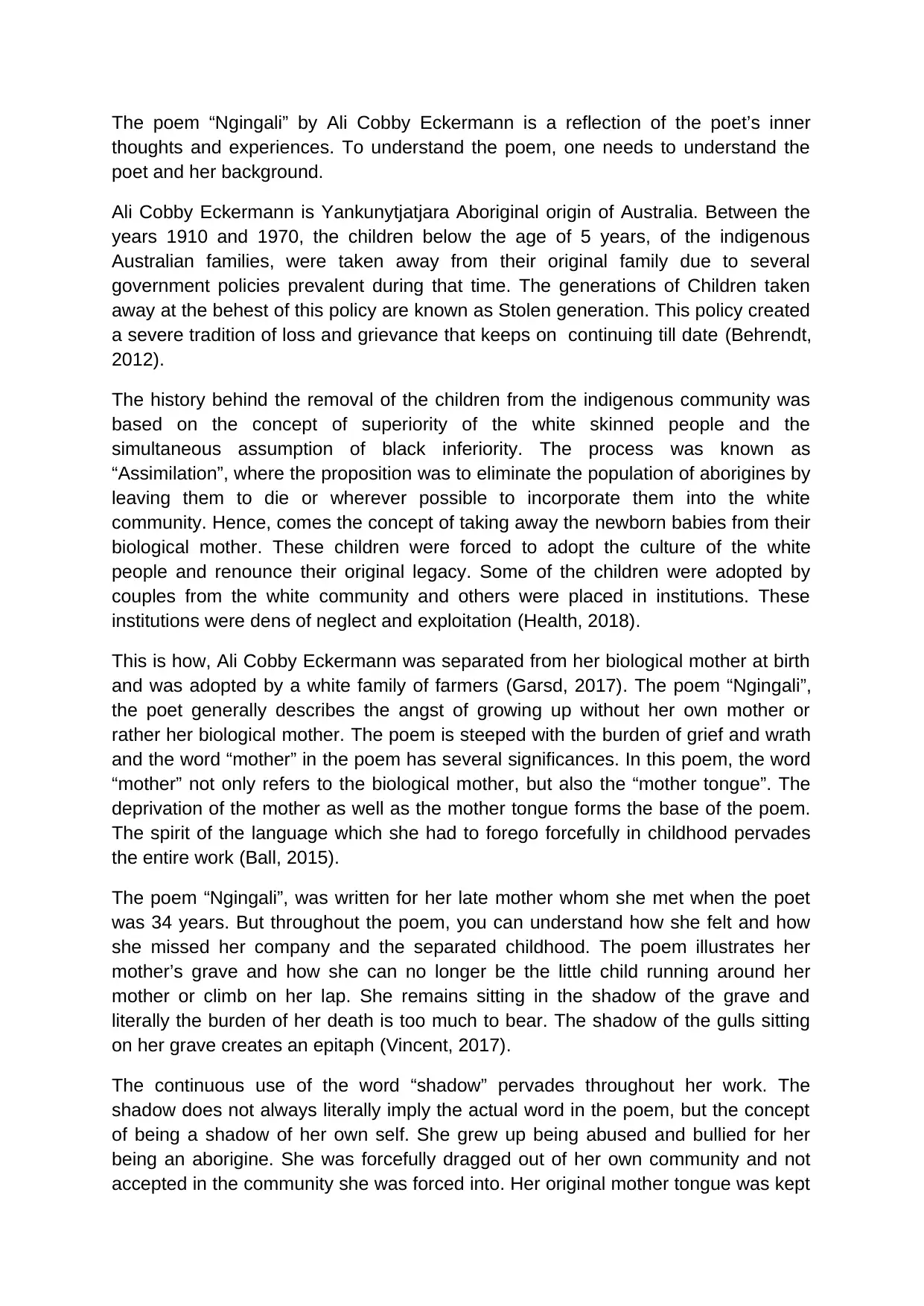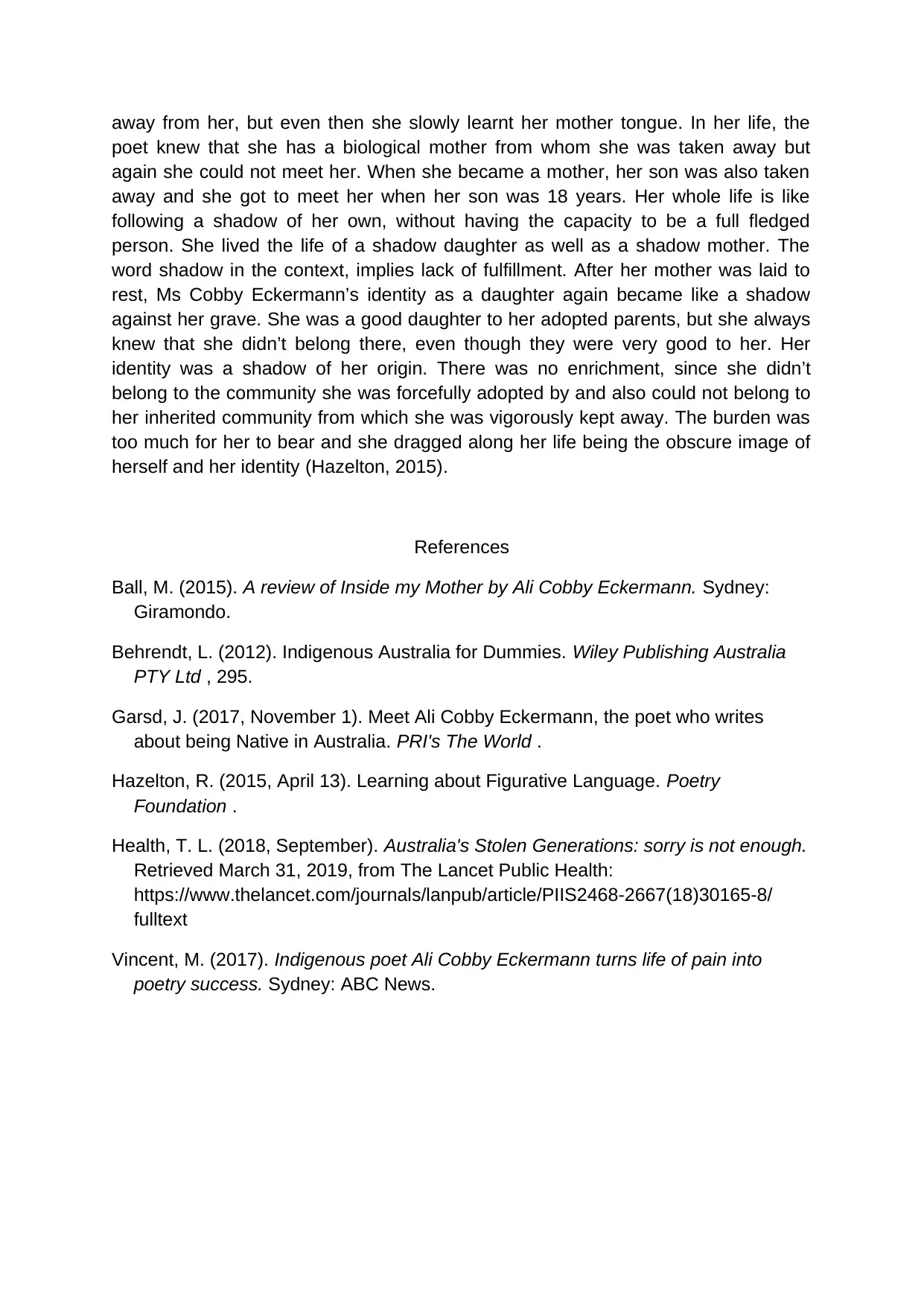Approaches to Text: Analyzing Shadow Metaphors in Eckermann's Ngingali
VerifiedAdded on 2023/04/19
|2
|1001
|424
Essay
AI Summary
This essay provides a detailed analysis of Ali Cobby Eckermann's poem “Ngingali,” focusing on the pervasive use of shadow metaphors. It explores how Eckermann, a Yankunytjatjara Aboriginal Australian and a member of the Stolen Generation, uses the concept of shadows to represent the grief, loss, and lack of fulfillment stemming from her separation from her biological mother and culture. The essay delves into the historical context of the Stolen Generation and how the forced assimilation policies impacted Eckermann's life and identity. The analysis highlights how the word "mother" in the poem encompasses both her biological mother and her mother tongue, emphasizing the deprivation she experienced. The essay argues that the shadow metaphor signifies not only the literal presence of shadows in the poem, such as those cast by gulls on her mother's grave, but also the poet's own sense of being a shadow of herself, lacking a complete and authentic identity due to her experiences of cultural displacement and personal loss, ultimately arguing that Eckermann uses shadows to convey the profound burden of her history and the enduring impact of the Stolen Generation.
1 out of 2



![[object Object]](/_next/static/media/star-bottom.7253800d.svg)